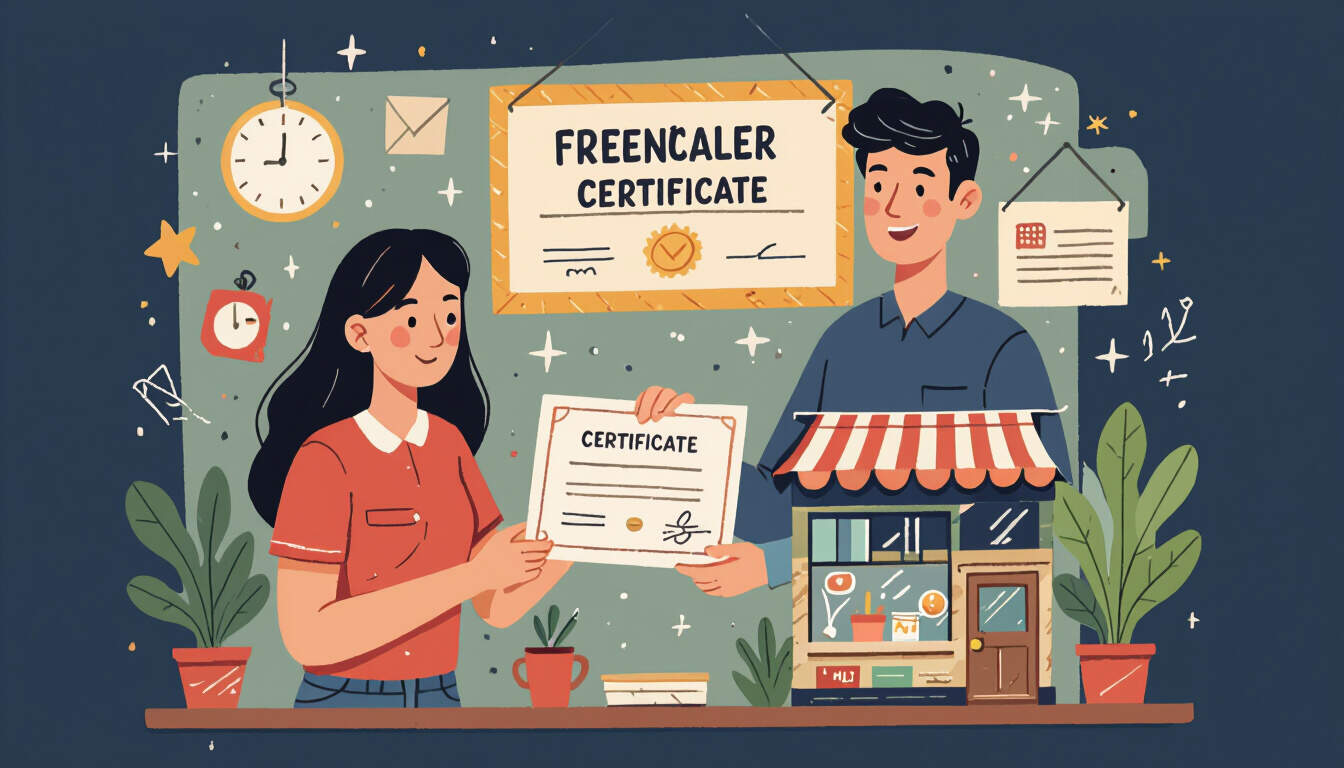Transitioning from Freelance Certifications to Startup Launch
 by Marlene Keeling
by Marlene Keeling
Freelance skill certification offers a vital pathway for freelancers aiming to build a startup. By gaining recognized credentials, individuals can enhance their expertise, attract clients, and lay the groundwork for independent business ventures, fostering growth and autonomy.

Freelance skill certification plays a key role in professional development. For many, it marks the first step toward greater independence.
Why Pursue Freelance Certification?
Acquiring certification in your field can significantly boost your market presence. It provides a formal acknowledgment of your abilities, making it easier to secure high-value projects. This process often involves structured learning, which refines your expertise and prepares you for larger challenges.
In the initial stages, freelancers might overlook the value of these credentials. However, they serve as a foundation for scaling up. For instance, a web developer who earns a certification in programming languages gains confidence in offering specialized services. This can lead to repeat business and a steady income stream.
Building a Foundation for Business Growth
Once you have your certification, the next phase is applying it practically. Start by integrating your new skills into your freelance work. This might mean taking on more complex assignments that align with your certified expertise.
Startup ideas often emerge from these experiences. A graphic designer with a certification in digital illustration could expand to creating custom branding packages. Over time, this specialization can evolve into a full-fledged business model.
To make this transition smoother, consider documenting your successes. Keep a record of projects completed post-certification, as these will form the basis of your portfolio. A strong portfolio not only attracts clients but also serves as evidence of your capability when seeking investors or partners.
Practical Steps to Move Forward
Begin with identifying certifications relevant to your niche. Options include platforms that offer courses in marketing, coding, or design. Complete the requirements and earn your credential.
After certification, focus on networking. Attend events or join online communities where professionals share insights. These interactions can spark collaborations and provide advice on launching a business.
Financial planning is another crucial aspect. Use your freelance earnings to set aside funds for startup costs. This might involve budgeting for tools, marketing, or initial staffing needs.
Overcoming Common Hurdles
Many freelancers face obstacles like time constraints or financial limits. Balancing certification studies with ongoing work requires discipline. Set clear goals and allocate specific times for learning.
Another challenge is market saturation. With more certified professionals, standing out becomes essential. Emphasize unique aspects of your services, such as personalized approaches or innovative solutions.
Motivation comes from seeing progress. Track how your certification has led to better opportunities, like higher rates or more clients. This reinforcement can propel you toward entrepreneurial goals.
Turning Skills into a Sustainable Business
The ultimate aim is to leverage your certification for independence. This means shifting from project-based work to establishing a company. Start small, perhaps by formalizing your freelance operations into a legal entity.
Develop a business plan that outlines your vision. Include details on target markets, revenue streams, and growth strategies. Your certified skills will be the core of this plan, providing a competitive edge.
As you launch, maintain a focus on continuous improvement. Seek feedback from clients and adapt your offerings accordingly. This iterative process ensures your business remains relevant and successful.
Stories of Success
Consider examples where freelancers have made the leap. A writer who obtained a certification in content strategy used it to start a digital agency. By applying their knowledge, they built a team and expanded services, achieving long-term stability.
These narratives highlight the potential outcomes. They show that with determination, certification can be the catalyst for meaningful change.
In summary, freelance skill certification is more than a credential; it's a bridge to entrepreneurial ventures. By investing in yourself, you pave the way for business growth and lasting independence.
